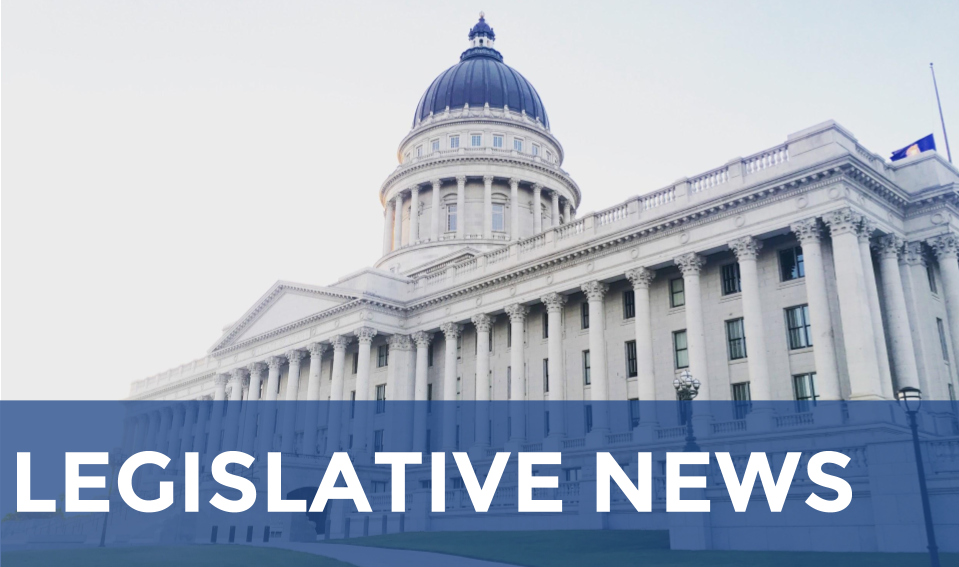A Push for Infrastructure Funding
 Members of the House Bipartisan Working Group have drafted a letter to Speaker of the House Nancy Pelosi (D-CA) and Minority Leader Kevin McCarthy (R-CA), urging the House to adopt a federal infrastructure package that “streamlines regulations and authorizes new investments directly to affected communities.” The letter, which has yet to be officially sent to Pelosi and McCarthy, cites the American Society of Civil Engineers’ D+ grading of the state of the nation’s infrastructure as evidence to the critical need to invest in the nation’s failing infrastructure, and identifies water and wastewater infrastructure among the infrastructure systems in need. The draft letter outlines the following, as the nation’s most urgent infrastructure needs:
Members of the House Bipartisan Working Group have drafted a letter to Speaker of the House Nancy Pelosi (D-CA) and Minority Leader Kevin McCarthy (R-CA), urging the House to adopt a federal infrastructure package that “streamlines regulations and authorizes new investments directly to affected communities.” The letter, which has yet to be officially sent to Pelosi and McCarthy, cites the American Society of Civil Engineers’ D+ grading of the state of the nation’s infrastructure as evidence to the critical need to invest in the nation’s failing infrastructure, and identifies water and wastewater infrastructure among the infrastructure systems in need. The draft letter outlines the following, as the nation’s most urgent infrastructure needs:
- Streamlining regulations to expedite project approval without sacrificing important standards, including:
- Establishing a “one-stop shop” or a lead federal agency to coordinate and determine the scope and adequacy of environmental reviews and permit issuance for interstate projects as a way to avoid redundancy and duplicity.
- Direct the Council on Environmental Quality (CEQ) to better align and coordinate federal environmental assessments, expedite reviews of high priority projects, and enforce existing CEQ regulations for permitting review deadlines.
- Ensuring permitting reviews to focus on material issues of impact and possible alternatives to prioritize net overall impact that does not compromise the environmental review process.
- Strengthening prudential guidelines for judicial review of permitting decisions, reducing litigation risks, and boosting presumption in favor of infrastructure projects.
- Leverage modernization of the federal motor fuels excise tax and study the transition to a user fee system. This includes:
- Modernizing and updating the federal motor fuels excise tax.
- Establishing a pilot program to study the transition to a user fee system or other alternatives that most equitably capture all types of vehicles.
- Leveraging increased public investment in infrastructure by conditioning eligibility for additional federal funds on significant matching commitments from state and local governments and private-public partnerships.
- Authorize short-term community directed infrastructure grant program. The program would provide each congressional district funds annually via a community directed infrastructure block grant. Project eligibility parameters would require:
- Projects exhibit demonstrable community need and support
- Enhance public health and safety and/or promote economic growth
- Only public entities are eligible for funding
- Projects must be accompanied by a clear financial plan for success
- Must be sponsored by each Member of Congress and published on their website
- Address gaps in access to rural broadband.
Federal Response to COVID-19
 Senate Minority Leader Chuck Schumer is expected to propose a $750 billion aid package on this week in an effort to combat the COVID-19 crisis. The yet to be released package is expected to provide medical and health care assistance to states, and financial assistance to citizens to spur economic activity.
Senate Minority Leader Chuck Schumer is expected to propose a $750 billion aid package on this week in an effort to combat the COVID-19 crisis. The yet to be released package is expected to provide medical and health care assistance to states, and financial assistance to citizens to spur economic activity.
In a separate ongoing matter, the Senate is expected to begin debate, as early as Tuesday, on the second COVID-19 emergency-spending bill, H.R. 6021, that contains several similar provisions, such as:
The second Covid-19 emergency-spending bill, H.R. 6021, would provide for:
- Paid sick leave for employed and self-employed at the employee’s rate of pay and 2/3 of pay, if caring for a family member (two weeks)
- Paid family leave and medical leave (including care for kids whose schools are closed) provided up to 12 weeks leave
- After 2 weeks of leave, employees will receive benefit from employers no less than 2/3’s of usual pay
- Emergency Paid Sick Leave Act provides that for employers with fewer than 500 employees to provide 2 weeks of paid leave for quarantine etc. and 2/3’s of pay for caring for a family member or child subject to school closure
- Employers to receive tax credits for provision of sick leave and family leave
- Refundable tax credit equal to 100 % of qualified paid sick leave wages (employer portion of Social Sec tax)
- In case of self-isolation, diagnosis, or self-isolation recommendation re: Covid-19, amount of sick leave is capped at $511 per day and $200 per day if caring for a family member or child whose school is closed
- Family leave wages capped at $200 per day and $10,000 for all quarters in a calendar year
- If tax credit exceeds employer’s total sick leave liability for all employees for any quarter excess credit is refundable to employer
- Refundable tax credit equal to 100% of family leave wages paid by employer for each quarter
- Technical assistance to states to help set-up work sharing to reduce lay-offs and allow for partial unemployment payments
Other Issues in Measure
- Supplemental Nutrition Assistance Program (SNAP) support including delivery of food and waives work requirements
- Enhanced support for Women Infant Children assistance programs including enrollment through telecommunications
- $400 million to support food provision to low income citizens
- $250 million to support Senior Citizens food needs
- $1 billion to support states’ unemployment benefits needs (states that experience 10% or more increase)
- Extended unemployment benefits (beyond traditional 26 weeks) will be 100% federal paid rather than 50%
House Committee Leadership Urges Water Utilities to Suspend Shutoffs
On March 10, a press release issued by the Energy and Commerce Chairman Frank Pallone, Jr. (D-NJ) and Transportation and Infrastructure Chairman Peter DeFazio (D-OR) urged water utilities across the country to avoid shutting off water service in the midst of the coronavirus outbreak:
“Today we are asking water utility companies across the country to stop shutting off water service to residents and families for nonpayment. Now is no time to compromise Americans’ access to safe, clean water – particularly when the Centers for Disease Control and Prevention is advising Americans to be diligent about washing their hands. Access to clean water is a basic human right at all times, but any action that restricts families’ access to water during the current coronavirus outbreak would be reckless in the extreme. This is a matter of protecting public health, and we call on utilities to recognize and respect that reality.”




 @CASA_CleanWater
@CASA_CleanWater